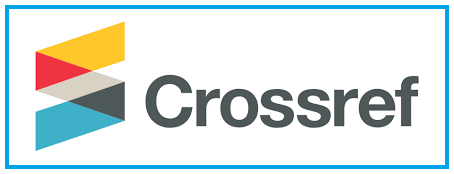PERLINDUNGAN HUKUM BAGI ISTRI WARGA NEGARA INDONESIA (WNI) TERHADAP STATUS HARTA BERSAMA DALAM PERKAWINAN CAMPURAN TERKAIT PEMBAGIANNYA KARENA PERCERAIAN.
Keywords:
Joint Property, Mixed MarriageAbstract
A valid marriage will bring legal consequences to assets. Regarding property in marriage is regulated in Article 35, Article 36, and Article 37 of the Marriage Law. The law stipulates that all assets acquired during marriage become joint property of the husband and wife, the use of which must be with the consent of both parties. Divorce has an impact on the distribution of joint assets. Here problems often arise where one party feels more entitled to the disputed property, especially if the former wife of an Indonesian citizen (WNI) is in a mixed marriage. The method used in this research is normative juridical research, namely library law research or secondary data with sources of primary, secondary and tertiary legal materials. The research approach used is a statutory approach, a conceptual approach, an analytical approach and a case approach. The technique of collecting legal material is carried out by identifying and inventorying positive law rules, literature, books, journals and other sources of legal materials. For legal material analysis techniques, it is carried out using legal interpretation (interpretation), grammatical interpretation, systematic interpretation and the Argumentum A Contrario method.From the research results it can be obtained that in mixed marriages, Indonesian citizens and foreign nationals who are involved in mixed marriages are still entitled to half of the value of the joint assets as long as the marriage agreement is not specified otherwise. This is because in article 35 of the Marriage Law it is stated that property acquired during marriage becomes joint property. With the existence of a marriage agreement, there is no mixing of the assets owned by the parties which belong to each other. The law regarding the division of joint assets due to divorce from mixed marriages is that first of all the husband and wife are given the freedom to determine the law that will apply to their marital assets through a marriage agreement. If they do not conclude a marriage agreement, the internal law of the country where the husband and wife establish their first daily residence after marriage will apply
Downloads
References
A’an Efendi, Dyah Ochtorina Susanti, Ilmu Hukum, Penerbit Kencana, Jakarta, 2021
A. Patra M. Zen, Perlindungan Pihak Ketiga Yang Beritikad Baik, Pustaka Obor Indonesia, Jakarta
Abdulkadir Muhammad, Hukum Perdata Indonesia, Pt. Citra Aditya Bawi, Bandung, 2019
Abdoel Djamali, Pengantar Hukum Indonesia, Raja Grafindo Persada, Depok
Ali Afandi, Hukum Waris, Hukum Keluarga, Hukum Pembuktian Menurut Kitab Undang-Undang Hukum Perdata, Bina Aksara, Jakarta, 1984.
Ahmad Zyahrus, Menggugat Kepastian Hukum, Mandar Maju, Bandung
Aminuddin dan H. Zainal Asikin, Pengantar Metode Penelitian Hukum, Raja Grafindo Persada, 2005.
Aulia Muthiah, Hukum Islam Dinamika Seputar Hukum Keluarga, Pustaka Baru Press, Yogyakarta
Arso Sosroatmojo dan Wasit Aulawi, Hukum Perkawinan di Indonesia, Cet. 3, Bulan bintang, Jakarta, 1981.
Budi Susilo, Prosedur Gugatan Cerai, Pustaka Yustisia, Yogyakarta, 2007.
Cholid Narbuko, H Abu Ahmad, Metodelogi Penelitian. Bumi angkasa, Jakarta. 2002
Cholil Mansyur, Sosiologi Masyarakat Kota dan Desa, Usaha Nasional, Surabaya, 1994
Effendi Perangin, Hukum Waris, Raja Grafindo Persada, Depok
Downloads
Published
How to Cite
Issue
Section
License
Copyright (c) 2023 SENTRI: Jurnal Riset Ilmiah

This work is licensed under a Creative Commons Attribution-NonCommercial-ShareAlike 4.0 International License.









